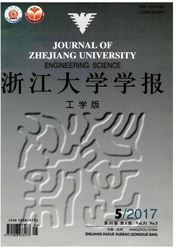

 中文摘要:
中文摘要:
为解决结构化P2P网络上语义发布/订阅系统上基于内容的高性能语义事件路由问题,提出一种基于集结点的语义事件路由算法(rendezvous—based semantic event routing,RSER),该算法根据订阅和事件的域标识、属性个数以及属性名映射订阅和事件到集结点,在支持语义路由的同时,避免了分布式哈希表(distributed hash table,DHT)映射精确性与语义数据模型复杂性之间的矛盾;通过属性个数限制事件发布目的地,减少事件发布流量;采用P2P的内在路由机制和聚合优化措施分发事件,充分利用P2P网络容错性的同时,降低事件路由流量.实验结果表明,在大规模的发布/订阅下,RSER算法在性能上优于基于逆向路径转发的路由算法,并在路由效率、网络资源消耗、订阅维护效率和扩展性等方面取得了良好的平衡效果.
 英文摘要:
英文摘要:
To facilitate the content-based semantic event routing for semantic publish/subscribe over structured P2P networks, a rendezvous-based semantic event routing (RSER) algorithm was proposed, which maps subscriptions and events to rendezvous nodes in term of a combination of domain identifier, number of attributes and attribute name. RSER not only provides the semantic routing but also avoids the contradiction between the precision of distributed Hash table (DHT) mapping and the complexity of semantic data model. By publishing events according to the number of attributes, the destinations and flow of event publication are reduced; by exploiting the implicit multicast tree on DHT routing substrate and aggregating event delivery messages to deliver events, the RSER algorithm makes full use of the fault tolerance of P2P networks and reduces the event routing traffics. The evaluation results demonstrated that the RSER algorithm is better than the reverse path based event routing (RPER) algorithm in performance, and achieves favorable effectiveness in routing efficiency, networking overhead, subscription maintenance efficiency and system scalability.
 同期刊论文项目
同期刊论文项目
 同项目期刊论文
同项目期刊论文
 期刊信息
期刊信息
